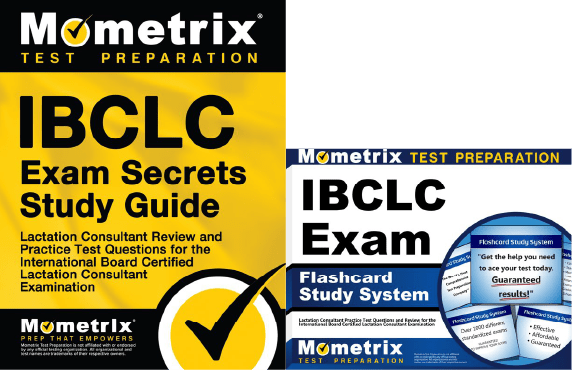If you need help studying for the International Board Certified Lactation Consultant (IBCLC) exam or just want some more information about what the exam is like, you’ve come to the right place.
Click below to take a free IBCLC practice test!
Exam Eligibility
Before you can register to take the IBCLC exam, you’ll have to meet the eligibility criteria in at least ONE of the following pathways:
- Pathway 1
You need to have obtained at least 1,000 lactation-specific clinical hours and at least 90 hours of lactation-specific education within the last five years. You’ll also need at least five hours of communication skills education within the last five years. - Pathway 2
You need to have obtained at least 300 supervised lactation-specific clinical hours at an CAAHEP-accredited program and at least 90 hours of lactation-specific education within the last five years. You’ll also need at least five hours of communication skills education within the last five years. - Pathway 3
You need to have a pre-approved mentorship set up with IBCLC. You need to have obtained at least 500 supervised lactation-specific clinical hours and at least 90 hours of lactation-specific education within the last five years. You’ll also need at least five hours of communication skills education within the last five years.
If you meet the requirements in one of these pathways, you’re set to begin the registration process!
What’s on the Exam?
There are 175 questions on the exam, which are grouped into seven domains, and the time limit is 4 hours (this includes a 10-minute break halfway through).
Let’s take a closer look at the different sections of the IBCLC exam.
1. Development and Nutrition
32 questions
- Feeding behaviors at different ages
- Food intolerances/allergies
- Infant anatomy and anatomical/oral challenges
- WHO guidelines for introducing complementary foods
- Low birth weight and very low birth weight
- Milk banking
- Normal infant behaviors
- Nutritional requirements
- Preterm development, growth, and behaviors
- Skin tone, muscle tone, reflexes
- Term development and growth
- WHO growth charts with gestational age adjustment
- Stooling and voiding
Maternal
- Breast development and growth
- Breast surgery
- Composition of human milk
- Maternal anatomical challenges
- Maternal nutritional status
- Nipple structure, variations, and modifications
2. Physiology and Endocrinology
14 questions
- Relactation
- Infertility issues
- Inducing lactation
- Pregnancy and breastfeeding
- Multiples
Endocrinology
- Hormonal influence of milk production
- Diabetes
- Maternal hormonal disorders
- Maternal autoimmune disorders
- Newborn hypoglycemia
3. Pathology
35 questions
- Ankyloglossia
- Cleft lip and palate
- Congenital anomalies
- GERD/reflux
- Hyperbilirubinemia
- Infant neurological disabilities
- SGA and LGA
- Infant acute disease
- Vertically transmitted infections
- Esophageal atresia
- Inborn error of metabolism
- Infant cancer
- Infant GI anomalies
Maternal
- Abscess
- Milk ejection reflex dysfunction
- Maternal acute disease
- Maternal chronic disease
- Maternal disability
- Mastitis
- Milk supply, low or over
- Nipple and breast conditions
- Nipple pain and trauma
- Post-partum hemorrhage
- Pre-eclampsia/pregnancy induced hypertension
- Maternal cancer
4. Pharmacology and Toxicology
14 questions
- Alcohol
- Nicotine and tobacco
- Cannabis
- Medications
- Drugs of abuse
- Contraception
- Galactagogues
- Gel dressings/nipple creams
- Herbs and supplements
- Chemotherapy/radiation therapy/radioactive scans
5. Psychology, Sociology, and Anthropology
20 questions
- Transition to parenthood
- Birth practices
- Foods to eat/avoid that influence lactation
- Employment
- Family lifestyle
- Identifying support networks
- Maternal mental health
- Maternal psychological/cognitive issues
- Breastfeeding dyad relationship
- Safe sleep
- Weaning
- Cultural awareness
6. Techniques
25 questions
- Effective milk transfer
- First hour
- Latching
- Managing supply
- Milk expression
- Position of the breastfeeding dyad
- Refusal of breast/bottle
- Skin-to-skin
7. Clinical Skills
35 questions
- Equipment and technology
- Education and communication
- Ethical and legal issues
- Research
- Public health and advocacy
How to Register
Once you’ve ensured that you meet all of the eligibility requirements, you can register for the exam.
To get started, you’ll need to submit an application on IBCLC’s website. The application will ask you for your contact information and any documentation to prove your eligibility (among other things).
Once your application is approved, you’ll need to register for the exam and submit the testing fee, which is $695.
Exam Scores
The test is scored using the criterion-based scoring method. Here’s how it works:
A collection of subject-matter experts have determined the specific knowledge and skills required to be a competent project manager and created the questions based on the criteria they came up with. They then came up with a cut-off score that reflects the minimum level of knowledge and skills you need.
The passing score changes periodically, but you should aim to answer at least 75% of the questions correctly.
Retaking the Exam
If you didn’t get a passing score on your first try, that’s okay! You can retake the test one more time after a one-year waiting period.
Keep in mind that you will have to pay a $345 retesting fee, and you can only retake the exam once before having to meet updated eligibility requirements.
FAQs
How many questions are on the IBCLC exam?
The exam contains 175 questions.
What is the time limit for the IBCLC exam?
The exam is timed at 4 hours.
What is the passing score for the IBCLC exam?
You should aim to answer at least 132 questions (75%) correctly.
How much does the IBCLC exam cost?
The testing fee is $695.



 IBCLC Study Guide
IBCLC Study Guide IBCLC Flashcards
IBCLC Flashcards